

Updated August 26, 2015: We've added a host of five new games into this list ranging from 4X strategy games to slightly more tactical experiences.
Strategy games, whether they are turn-based or real-time, occupy a unique niche within gaming. While there is not always the thrill of the fight, there is often a deep satisfaction achieved from outsmarting both other players and particularly AI. Here are some of the most favored titles in recent years, in no particular order.
Made by the masters of grand strategy games, Paradox Interactive, Crusader Kings II explores one of the defining periods in world history. Medieval history is brought to life as players take on the role of a regent in any one of the period's many dynasties and ruling families and set out to carve an empire out of the ruins of the Dark Ages.
Beyond Earth is a science fiction take on the tried and tested Civilization formula of turn-based grand strategy games. As part of an expeditio nto find a home beyond an overpopulated Earth, players must lead their people into a new frontier, explore and colonize an alien planet and create a new civilization in space.
Set in the Endless Universe, in which Endless Legend also takes place, Endless Space is a turn-based 4X strategy game in which players take on the role of one of many spacefaring civilizations. You can control every aspect of your civilization as you strive for galactic dominion.
Sorcerer King is a fantasy turn-based strategy title in the vein of 4X games like the classic Master of Magic. In the game, players must build a kingdom and raise a force powerful enough to challenge the eponymous Sorcerer King. It's a game where the bad guy has already won and it's up to the remnants and survivors of his onslaught to set things right. You have to do so before he fulfills his plan of becoming a god and destroys the Elemental Shards upon which the world's magic depends on.
A bit like XCOM with a mix of stealth, Invisible, Inc. puts you in charge of secret agents in the field, taking them to infiltrate some of the world's most dangerous corporations. Players are required to use stealth, precision, and teamwork to accomplish these missions without getting caught.
Developed by Petroglyph, the makers of Command & Conquer, Grey Goo is a return to form. In the game, players fight for survival on a planetary oasis by commanding one of three factions: the defense-oriented Humans, the versatile Beta, or the all consuming Goo. The game caters to a myriad of play styles, including the ability to turtle, by offering players the ability to construct impenetrable walls, dominate from strategic outposts—or become the Goo and overrun your enemies.
Endless Legend is a fantasy-themed 4X turn-based strategy game from the creators of Endless Space and Dungeon of the Endless. The game is the fantasy follow up to Endless Space replacing the surreal beauty of a tactically significant vacuum with vibrant, terrain-filled hexagons. In Endless Legend, players control every aspect of their civilization as they struggle to save their homeworld of Auriga.
Read our review of the title here.
Developed by Stardock Entertainment, Galactic Civilizations 3 is a 4X space strategy game and the latest installment in one of the highest-rated strategy series of all time. The game challenges players to build an empire that dominates the galaxy through conquest, diplomacy, cultural hegemony, or scientific research. The stars are yours to control.
Developed by the makers of Overlord, Triumph Studios, Age of Wonders 3 is the third game in the Age of Wonders series of turn-based strategy games.The game sees a return to classic turn-based strategizing with an overworld map as well as a combat system that’s akin to Final Fantasy Tactics.
Players can participate in two separate campaigns that pit rival factions against one another, in an overarching narrative that ties both of the campaigns together. Players can also play the game in free mode, which is much like Civilization—because that’s where the fun is at.
The war game lives on the PC platform and no other, and the upcoming Europa Universalis is bigger and more expansive than any other wargame before it. The entire duration of the game stretches between the mid-15th century to the late 18th century, containing every detail you ever cared to know about generals, politicians, nobles, and royalty of all the European nations during that time. Like its predecessors, the game is all about politics and war on a grand scale.
Apaprently, The Creative Assembly’s much lauded Total War series is stuck in a groundhog day like cycle now. Everything ends with Empire, the last era that featured the kind of mass unit warfare the series handles so well, and goes back to the start, back to the Shogun era. Then there’s another Rome.
This time we’re up to the Rome part of the cycle. It’s the second time Total War comes to the time where legionaires clashed with barbarians, and this times, things are not going to be pretty.
Based on Relic’s experience with Dawn of War, the World War II era realtime strategy game Company of Heroes was widely regarded as the ultimate toy soldier game when it arrived to both commercial success and critical acclaim back in 2006. Ever since then, the Company of Heroes franchise has seen several new entries in form of both regular and stand alone expansion packs, but no true sequel.
Until now. After publisher THQ went under last year the rights to the franchise have passed on to SEGA, who will publish the Eastern Front focused Company of Heroes 2 later this month. Watch trailer
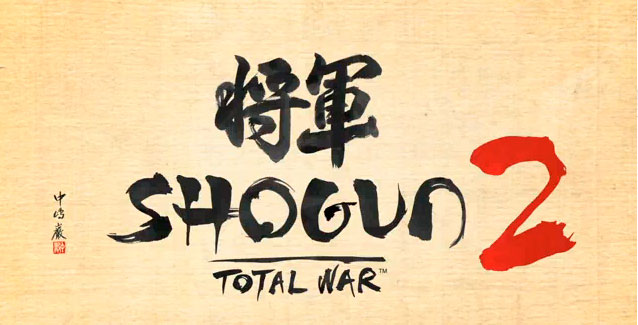
Shogun 2 brings the Total War series back to its roots. Set in feudal Japan, players take on the roles of one of the many Daimyo vying for the title of Shogun as they take to the battlefield and subjugate their neighbors.
Players must also contend with the rise of Christianity in Japan and the influence of foreign powers which threaten not only to take over the country, but also its culture. It's up to the players to decide how history itself unfolds by making decisions both on the field and over the map board.
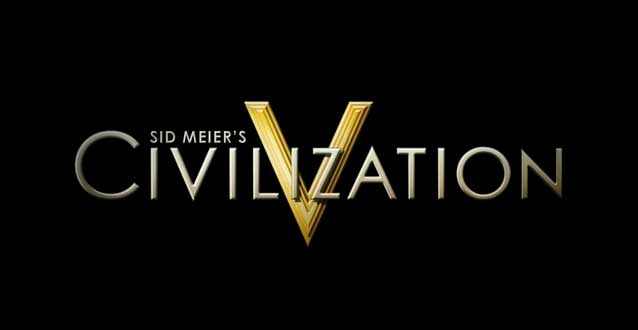
Civilization 5 isn't the best game in the Civilization series, but it's the newest, and arguably the one with the best combat thanks to the implementation of a hexagonal board. The game is even further improved by its expansion packs, which alter—if not improve—the game in fundamental ways from culture and religion to diplomacy.
If you're searching for kindness in the latest Civilization, you'll have to set the game's difficulty down to the lowest setting because it's easily the most challenging game of the bunch. Regardless of whatever shortcomings it might have with long-time fans of the series, Civilization 5 is by far one of the best strategy games around.
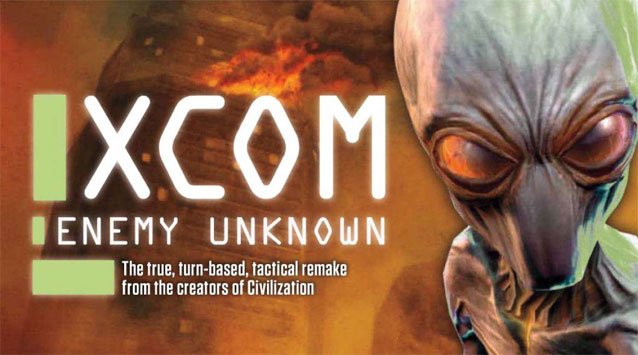
XCOM: Enemy Unknown is a worthy successor to the turn-based strategy game series by Microprose—classics from almost two decades ago. Revived by Civilization developer Firaxis, the new XCOM streamlines everything that made the original title a little annoying to play through and improves upon all of its best qualities for a modern, turn-based strategy game that's like no other.
The game's popularity and success stands as a testament to the strength of turn-based strategy games, which have stood the test of time despite being declared 'dead' a million times over.
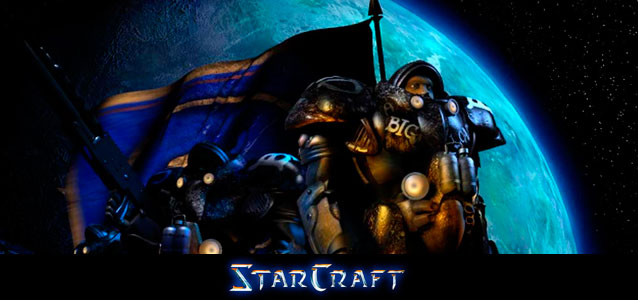
This classic real-time strategy game, released in 1998 is still one of the most popular releases of all time. Three species duke it out in the 26th century to gain control of a faraway chunk of the Milky Way. Terrans are humans who've been exiled from Earth. Another humanoid species, the Protoss, who are fairly advanced and possess various psychic abilities, are trying to keep their culture safe from the insectoid Zerg, who are bent on assimilating everyone else.
Starcraft is largely considered a game that revolutionized real-time strategy gameplay, as well as providing a deeply engaging story. There is still a thriving community of professional competitors, particularly in Asia, complete with sponsorships and televised events. Zerg Rush!
It also featured in our Top 10 Space Strategy Games list.
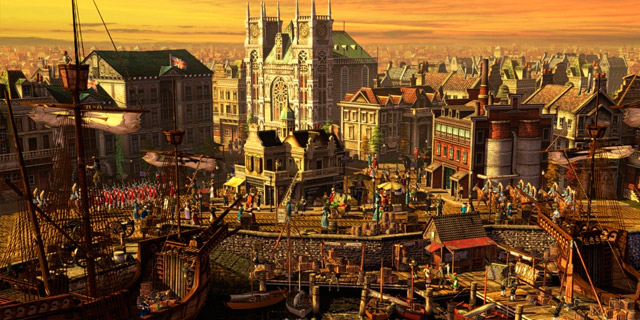
This real-time strategy game, released in 2005, takes place largely during the colonial era, from the late 1400s to the 1850s. Players must choose to develop a colony of Europe, Asia, or North America from an initial settlement to a thriving empire. Development of the colony goes through various technological ages, but unlike other games about territorial conquest, such as the Civilization series, where it is technically possible to play an entire game without fighting, this game requires the player to destroy the enemy's colony. Emphasis is placed on the production of civilian units to collect resources to stimulate the economy, and the development of the military to defend against rival colonies.
Another feature unique to this game is the use of a "Politician System", where players must choose from among several politicians upon successful completion of each level, which grant various bonuses. Difficulty level is assigned to specific colonies, as opposed to a more customized method, which often serves as motivation to keep playing.
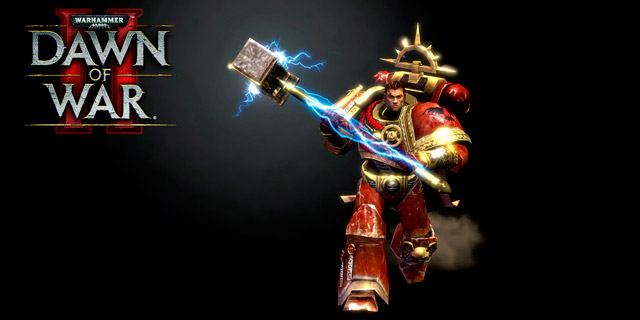
This title, a sequel and marked improvement to the first Dawn of War is unique in that the multiplayer option involves co-op, as opposed to pitting players against one another. The campaigns, unlike those found in this game's predecessors are non-linear, and do not have base building elements. Units must be selected before a missions beings, and no new units are issued once it is progress.
Players are faced with decisions regarding the missions and locations chosen in which to fight, and consequences are based on these choices. Even after choices are made, missions can have multiple objectives which may be mutually exclusive depending on the further unfolding of events.
This game can be appealing to those who normally prefer RPGs, as players to level up, and some units can be equipped with scavenged weaponry and armor. This is a good crossover game for any die-hard RPG fans who are interested in experiencing a strategy game without completely unfamiliar elements.
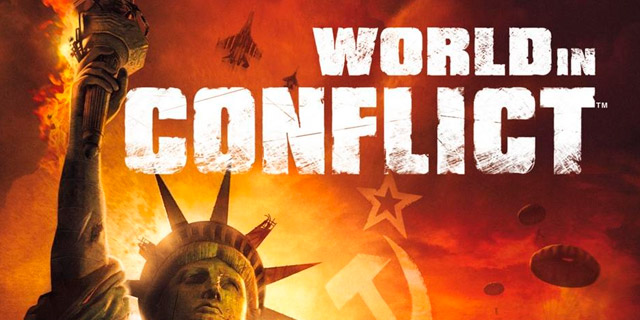
Many strategy games take place either in the distant past or future, but this title, released in 2007, is set in more recent times, during the collapse of the Soviet Union, but speculates as to what would have happened if Soviet forces had attempted to remain in power through aggressive action.
There is no resource collection or base building in this game, but rather reinforcement units are bought with a pre-determined amount of in-game points, and dropped into the battlefield. When units are dead, the points gradually return to the player's balance, so that new units can be acquired.
In multi-player games, players choose a specific role from among four preset roles, Air, Armor, Infantry, and Support. These have various abilities, such as unusually effective long ranged attacks, and the ability to hide easily, but are usually balanced with a weakness of some sort, like being vulnerable to attack on open ground, or being useless in short-range skirmishes.
Players will enjoy the small user interface, as it provides a more open view of the battlefield and the ability to manage individual units more effectively.
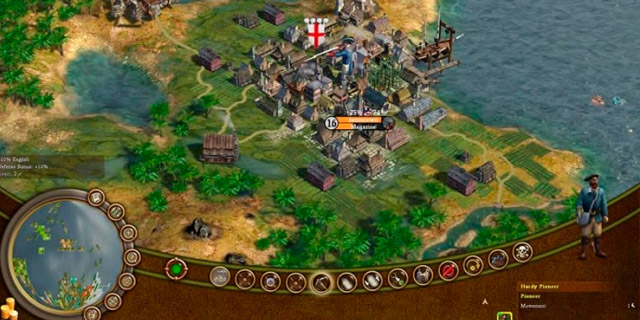
Like the other titles in this series, Civilization IV is a turn-based game in which the player takes on the role of the leader of an empire that must be built from scratch from a single city, built by a settler in 4000 B.C. As the building expands, so do the options for infrastructure, military fortification and training, study of science and art, religion, and all the other stuff that empires have. Build "wonders" around the empire, and experience the birth of historical figures who can enhance various aspects of cities within the empire.
This game, like many turn-based strategy games can feel slow for the first few turns, but things get interesting once contact is made with neighboring cultures, and the potential for trade, aid, and war arises. Bonus: Leonard Nimoy congratulates the you overtime you attain a new technology or hit a milestone within your empire.
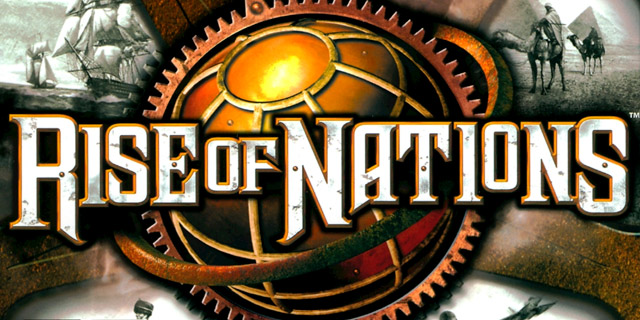
This game features the idea of expanding territory similarly to Civilization IV, but employes a real-time mode of gameplay. Territory is expanding by building more cities and forts within the borders, which opens more options on a technology tree, through which options are selected to customize the territory. Cities support citizen units, which can be assigned to specific tasks, but will always look for tasks to do when idle if not assigned to anything specific. Rise of Nations specifies six different resources, food, timber, metal, oil, wealth and knowledge, which are used to create buildings, units, and to research technologies.
Any nation within the game is playable at any point in history, regardless of the actual historical timeline of that nation, but resources only become available in the age in which they were originally utilized. Keeping a balance between offensive and defensive forces is crucial to successful gameplay, as is the state of the economy. Rise of Nations is both rewarding and frustrating in turns, but always highly addictive.
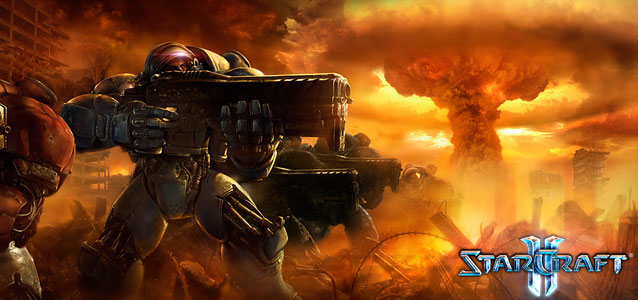
This long awaited sequel to the original Starcraft has earned a spot on this list in its own right. Finally released in July of 2010, the story picks up four years after the events of the original Starcraft, and follows an insurgent group attempting to make its way across the Terran Dominion. Non-linear gameplay with regard to the campaigns keeps the game interesting, and is a minor departure from the original. However, the order in which the campaigns are done will not interrupt the narrative.
Units remain largely the same, with some additional specialized units available only for campaign play and not in regular multi-player, such as the Terran Wraith, Vulture, and Diamondback. There is also a map editor, similar to the original StarEdit, which allows for customization of terrain and campaigns.
A word of warning for players hoping to have a nostalgic evening of strategy gaming with local friends, though: Blizzard has killed LAN play with this release, so players can only play together online, and on the same server. Any players wishing to play together must ensure that they've signed up for the same server at the time of original registration, because the game is region-locked.
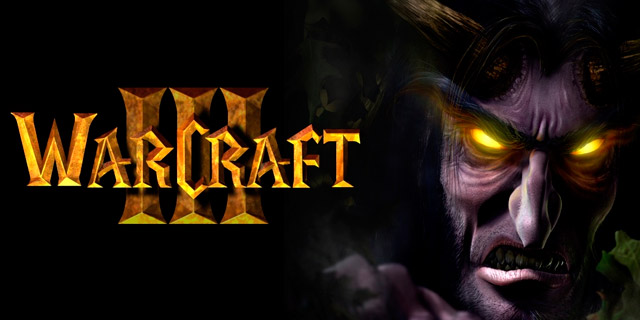
Before it was an extremely popular (and often parodied) MMORPG, the "world" of Warcraft existed in a series of real-time strategy games. Standard resource-gathering and unit-building rules apply, with "black mask" covering unopened areas of the map. Once explored, the black mask is removed, but these areas must remain within sight of at least one unit, or they will be covered in the "fog of war".
With AI-controlled, universally hostile units called "creeps" guarding areas heavy in resources, there is a slight element of RPGs, especially since players win experience points, gold and items after defeating them. Also introduced in this game was the shifting from day to night, which provides more cover, but reduces the ability to see incoming attackers.
There are five total campaigns, which are broken up according the various character race factions, though some specific "hero" characters are retained across each race's campaigns. Warcraft III still has a devoted following, and in spite of the massive popularity of the MMORPG, remains a favorite among fans of Warcraft and strategy games alike.
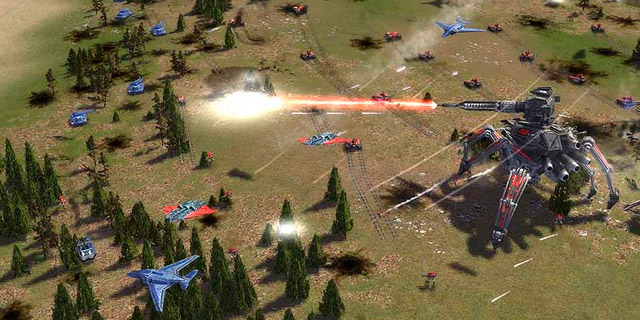
Considered by many to be a spiritual successor to 1997's Total Annihilation, Supreme Commander begins with a single unit, which much be expanded and multiplied to aid in a war which has erupted in the future after humans developed portal technology, referred to as a "quantum gateway".
The three warring factions are the Cybran nation, comprised of cyborgs who wish to separate from the other two factions, and get out from under the thumb of the United Earth Federation, which represents a united government for all three factions, which of course would be based off of the planet Earth. Finally, there is the Aeon Illuminate, which wishes to emulate the so-called "Golden Age" of Earth, in which alien life was first discovered but soon went south due to xenophobia. Naturally, the thing to do when fighting xenophobia is to go out and wage war on anyone who doesn't share the same beliefs.
The critical moment comes when the UEF decides to use "Black Sun", a weapon which, if deployed, will wipe out both planets of the other factions. However, the Crybrans and the Aeon Illuminate have their own secret weapons as well, and one of these does involve use of the phrase "Monkeylord", which is reason enough to put any game on a top 10 list.
The sequel to the game featured in our Top 10 Strategy Games on the Xbox 360.
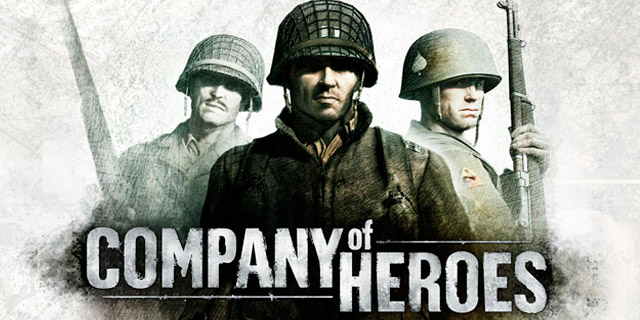
This release and subsequent expansions from Relic Entertainment takes place during WWII. Players are put in charge of two U.S. units during the Allied takeover of France from occupying Nazi forces.
Micromanagement skills are key in this game, and perhaps provide the tiniest degree of realism (minus the horrific violence, of course, as this is not typically depicted in strategy games) as to what it must have been like to actually "storm the beach at Normandy", considering that there were over 150,000 troops in reality, and each one had to know exactly what when and where in order for the mission to be successful.
Players take control of points on the campaign map, collect munitions, fuel and manpower, and can takeover civilian buildings to convert them to barracks, which will aid in the creation of new units.
Company of Heroes has been praised as one of the best real-time strategy games of all time, with several successful expansions and both LAN and online options available for multi-player.




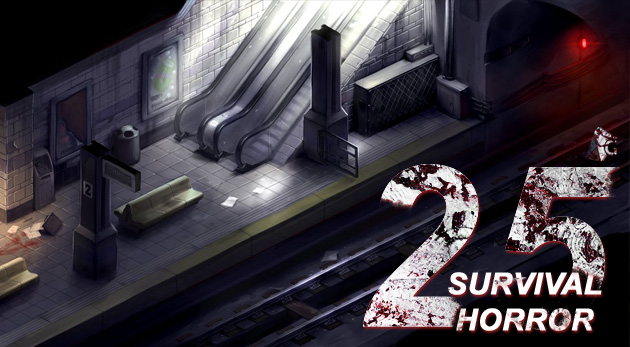 Top 25 Best Survival Horror Games
Top 25 Best Survival Horror Games Disgaea 5: Alliance of Vengeance Wiki – Everything you need to know about the game .
Disgaea 5: Alliance of Vengeance Wiki – Everything you need to know about the game .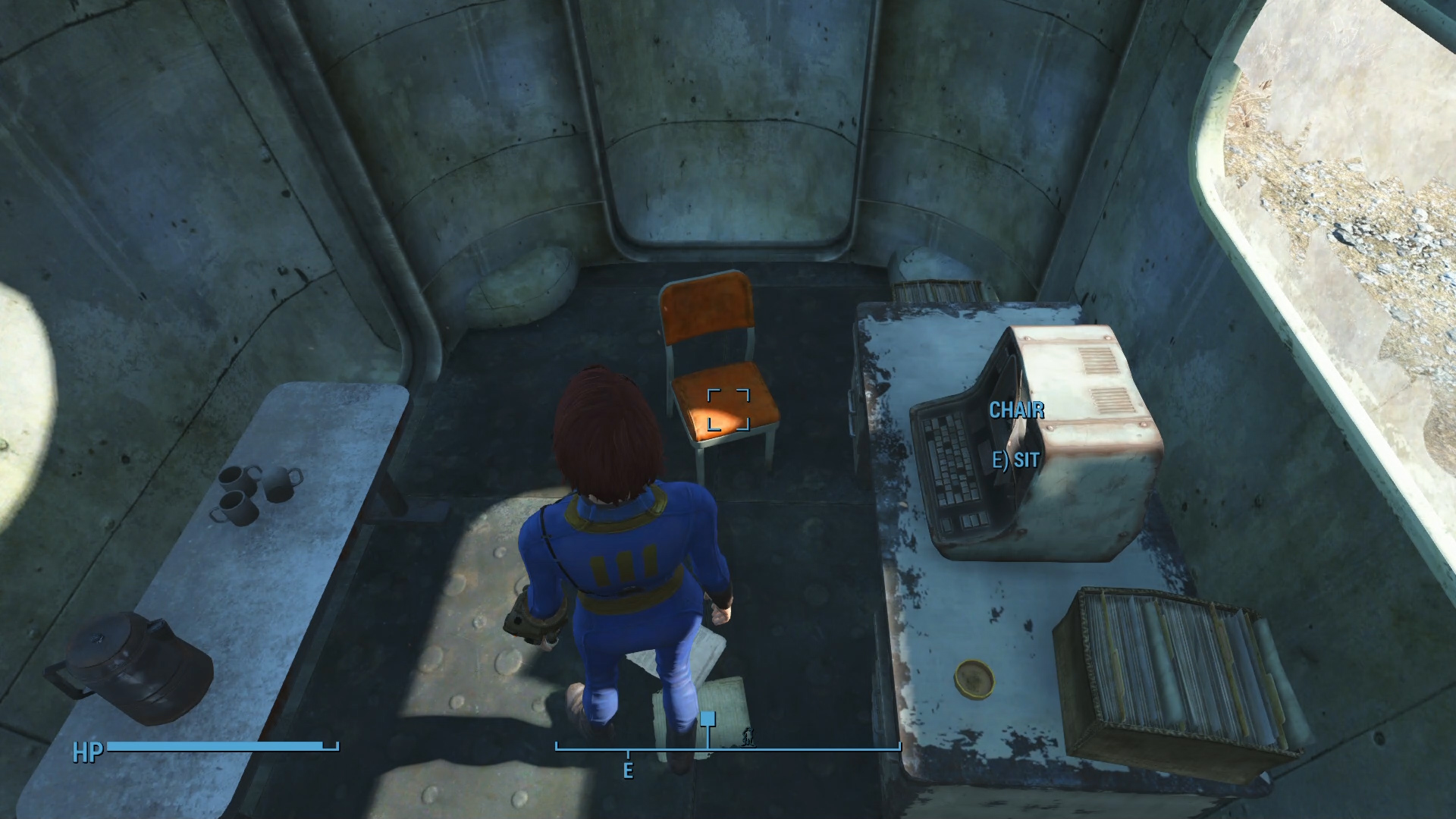 How to Wait in Fallout 4
How to Wait in Fallout 4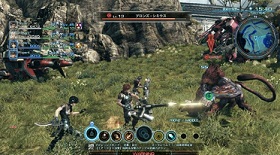 Best 5 Weapons in Xenoblade Chronicles X
Best 5 Weapons in Xenoblade Chronicles X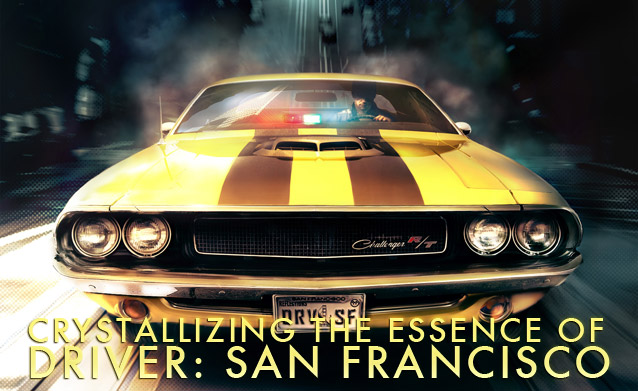 Crystallizing the Essence of Driver: San Francisco
Crystallizing the Essence of Driver: San Francisco